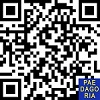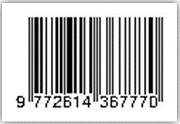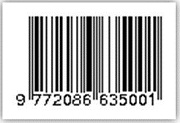PEMBELAJARAN MENULIS CERPEN BERBASIS PLATFORM SASTRA SIBER DI INDONESIA: SELERA INDUSTRI ATAU KEBUTUHAN SENI?
Abstract
Abstract: The aim of this research is to reveal the gap in the use of literary works on cyber literary platforms (Wattpad, Fizzo, and NovelToon) in Indonesian literature learning. Apart from that, this research aims to determine the quality of students' short stories and the implications of using cyber literary platforms for literature learning in Indonesia. The use of cyberliterature platforms is recognized as effective in teaching and introducing literature to students. However, learning literature using the cyberliterature platform has an impact on the quality of the short stories produced by students. The main problem of this research is the quality of the literary environment of the cyber literature platform, what is the impact of the cyber literature platform on the characteristics of students' short stories, and what are the implications of using the cyber literature platform on students' literary tastes. This study used the descriptive-qualitative method. Data were analyzed qualitatively with (1) data reduction, (2) data presentation, and (3) verification. Data was obtained through a literature study of research and sources related to literary learning and cyber-literary platforms. The research results show that the cyberliterary environment does not support a noble literary environment. This has an impact on the characteristics of students' short stories, which are similar to the characteristics of popular literature. Therefore, the use of cyberliterary platforms in literature learning can have implications for the taste, quality, and direction of the development of Indonesian literature at large.
Keywords
Full Text:
PDFReferences
Abdul Manaf, N. (2015). Dinamika Penggunaan Kata dan Istilah dalam Karya Sastra Indonesia dan Implikaturnya. Humanus, 14(1), 92. https://doi.org/10.24036/jh.v14i1.5406
Al-Hafizh, M. (2012). Menakar Fungsi Dulce Et Utile Karya Sastra Remaja Indonesia. International Conference on Languages and Arts, 445–452.
Aryanto, S., Widiansyah, A., & Markum, M. (2019). Kreativitas dalam Pembuatan Sastra Anak Berbasis Ecopreneurship. Indonesian Journal of Primary Education, 3(2), 83–90. https://doi.org/10.17509/ijpe.v3i2.21677
Basri, B., & Tamrin, A. F. (2022). Cyber Literature Apps Effectiveness in Learning Literature. Proceedings of the 1st Konferensi Internasional Berbahasa Indonesia Universitas Indraprasta PGRI, KIBAR 2020, 28 October 2020, Jakarta, Indonesia. https://doi.org/10.4108/eai.28-10-2020.2315338
Bhagirath Jetubhai Khuman, & Ghosal, M. (2019). Literature for building an inclusive society: Ungendered narrative and its impact on the daily life of queer individuals. Moderna Språk, 113(2), 108–123. https://doi.org/10.58221/mosp.v113i2.7558
Bødker, S., Lewkowicz, M., & Boden, A. (2020). What’s in a word? Platforms Supporting the Platform Economy. Proceedings of the 11th Nordic Conference on Human-Computer Interaction: Shaping Experiences, Shaping Society, 1–10. https://doi.org/10.1145/3419249.3420167
Creswell, J. W., & Poth, C. N. (2016). Qualitative inquiry and research design: Choosing among five approaches. Sage publications.
Danilova, L. N. (2023). Psychological and pedagogical profile of the alpha generation. Vestnik of Kostroma State University. Series: Pedagogy. Psychology. Sociokinetics, 28(4), 5–12. https://doi.org/10.34216/2073-1426-2022-28-4-5-12
Devi, T. K. (2019). Blogs as Platforms for Disseminating and Popularizing Literature. International Journal of Linguistics, Literature and Translation, 2(2), 48–51.
Dewojati, C. (2021). Sastra Populer Indonesia. UGM PRESS.
Duhan, R. (2015). The Relationship between Literature and Society. Language in India, 15(4).
Dwaik, R., Jweiless, A., & Shrouf, S. (2016). Using Blended Learning to Enhance Student Learning in American Literature Courses. Turkish Online Journal of Educational Technology-TOJET, 15(2), 126–137.
Fatimah, E., & Istiani, I. (2021). Cinderella Syndrome of Working Women in Cyber Literature. E-Structural, 3(02), 131–144. https://doi.org/10.33633/es.v3i02.4338
Febriani, R. B., Rukmini, D., Mujiyanto, J., & Yuliasri, I. (2022). Lecturers’ Perception on the Implementation of Approaches to Teaching Literature in EFL Classrooms. Studies in English Language and Education. https://doi.org/10.24815/siele.v9i1.21035
Fletcher, L. (2016). Popular Fiction and Spatiality. Popular Fiction and Spatiality, 1–8. https://doi.org/10.1057/978-1-137-56902-8
Gabrielsen, I. L., Blikstad-Balas, M., & Tengberg, M. (2019). The Role of Literature in the Classroom: How and for What Purposes Do Teachers in Lower Secondary School Use Literary Texts? L1 Educational Studies in Language and Literature. https://doi.org/10.17239/l1esll-2019.19.01.13
Gao, L. (2023). Contemporary american literature in Online Learning: fostering Reading Motivation and Student Engagement. Education and Information Technologies, 28(4), 4725–4740. https://doi.org/10.1007/s10639-022-11329-5
Gelder, K. (2004). Popular fiction: The logics and practices of a literary field. Routledge.
Gelder, K. (2016). New directions in popular fiction: Genre, distribution, reproduction. Springer.
Hasan, A. M., & Hasan, Z. F. (2019). Students’ Perception Towards Literature Integration in the English Language Departments at Duhok and Zakho Universities. Advances in Language and Literary Studies. https://doi.org/10.7575/aiac.alls.v.10n.4p.130
Hedrick, A. (2021). One Direction real person fiction on Wattpad.com: A textual analysis of sexual consent. Feminism and Psychology, 31(3), 366–384. https://doi.org/10.1177/0959353520958896
Herfanda, A. Y. (2018). Membentuk Karakter Siswa dengan Pengajaran Sastra. Jurnal Tuturan, 1(1), 1. https://doi.org/10.33603/jt.v1i1.1086
Hermanto, M. D., & Hasanudin, C. (2022). Meningkatkan Keterampian Menulis Cerpen Siswa SMA Dengan Memanfaatkan Aplikasi Noveltoon. Prosiding Seminar Nasional Daring: Pendidikan Bahasa Dan Sastra Indonesia, 2(1), 29–37.
Hutami, N., & Alfisuma, M. Z. (2022). The Application of Socio-Cultural Pedagogical Approach in Teaching Popular Literature. Lensa Kajian Kebahasaan Kesusastraan Dan Budaya. https://doi.org/10.26714/lensa.12.2.2022.197-216
Jung, L.-H., Choi, J.-H., Bang, H.-M., Shin, J.-H., & Heo, Y.-R. (2015). A comparison of two differential methods for nutrition education in elementary school: Lecture-and experience-based learning program. Nutrition Research and Practice, 9(1), 87–91. https://doi.org/10.4162/nrp.2015.9.1.87
Kardiansyah, M. Y. (2021). WATTPAD AS A STORY-SHARING WEBSITE: IS IT A FIELD OF LITERARY PRODUCTION? English Language and Literature International Conference (ELLiC) Proceedings, 3, 419–426.
Karnanta, K. Y. (2017). Hierarki Sastra Populer dalam Arena Sastra Indonesia Kontemporer. Jentera: Jurnal Kajian Sastra, 4(1).
Kaushik, V., & Walsh, C. A. (2019). Pragmatism as a Research Paradigm and Its Implications for Social Work Research. In Social Sciences (Vol. 8, Issue 9). https://doi.org/10.3390/socsci8090255
Khoerunnisa, N., Cahyani, A. W., Anggitasari, D., & Zanuar, M. Y. (2022). Pemanfaatan wattpad sebagai inovasi pengembangan media pembelajaran berbasis teknologi informasi bagi materi menulis cerita pendek di SMP Negeri 1 Padamara. Jurnal Studi Inovasi, 2(3), 18–24.
Kraxenberger, M., & Lauer, G. (2022). Wreading on Online Literature Platforms. Written Communication, 39(3), 462–496. https://doi.org/10.1177/07410883221092730
Lee, S. M., Na, E. S., & Lee, P. (2022). A Study on the Characteristics of Alpha Generation: Focusing on the Perception of Private Kindergarten Teachers. Korean Association For Learner-Centered Curriculum And Instruction, 22(17), 183–199. https://doi.org/10.22251/jlcci.2022.22.17.183
Lubis, R. A. (2019). Efektivitas Media Wattpad dalam Pembelajaran Menulis Cerpen Pada Siswa Kelas VIII SMP Negeri 1 Manduamas Tahun Pembelajaran 2018/2019. Universitas Negeri Medan.
Miles, M. B., & Huberman, A. M. (2005). Qualitative data analysis (terjemahan). Jakarta: UI Press.
Muassomah, M., Abdullah, I., Istiadah, I., Mujahidin, A., Masnawi, N., & Sohrah, S. (2020). Believe in Literature: Character Education for Indonesia’s Youth. Universal Journal of Educational Research, 8(6), 2223–2231. https://doi.org/10.13189/ujer.2020.080605
Mulyaningtyas, R., & Ekafebriyanti, V. (2021). Pemanfaatan Noveltoon Sebagai Media Pembelajaran Prosa Di SMA. Tabasa: Jurnal Bahasa, Sastra Indonesia, Dan Pengajarannya, 2(2), 87–106. https://doi.org/10.22515/tabasa.v2i2.3938
Noor, R. (2017). Sastra Populer dan Masalah Mutu Penelitian Sastra di Perguruan Tinggi. Nusa: Jurnal Ilmu Bahasa Dan Sastra, 12(4), 265–275.
Nurfadli, M., & Hasanudin, C. (2023). Pemanfaatan Aplikasi Fizzo untuk Meningkatkan Pemahaman dan Daya Tarik Mahasiswa dalam Menulis pada Pembelajaran Abad 21. Seminar Nasional Daring Sinergi, 1(1), 1086–1093.
Nurhidayah, S., & Setiawan, R. (2019). Lanskap Siber Sastra: Postmodernisme, Sastra Populer, Dan Interaktivitas. Poetika, 7(2), 136. https://doi.org/10.22146/poetika.v7i2.50779
Putrayasa, I. B. (2017). Literature as Media Education Nation Character Values. International Journal of Linguistics, Literature, and Culture, 3(3), 1–9. https://doi.org/10.21744/ijllc.v3i3.443
Rahman, F. (2017). Cyber Literature: A Reader – Writer Interactivity. International Journal of Social Sciences & Educational Studies, 3(4), 156–164. https://doi.org/10.23918/ijsses.v3i4p156
Rosen, J. (2020). Shakespeare Novelized: Hogarth, Symbolic Capital, and the Literary Market BT - The Novel as Network: Forms, Ideas, Commodities (T. Lanzendörfer & C. Norrick-Rühl (eds.); pp. 271–298). Springer International Publishing. https://doi.org/10.1007/978-3-030-53409-7_16
Sari, R. P. (2022). The Interaction of User Experiences with Digital Economy Platforms and Creative Writing: Empirical Evidence from Indonesia. Journal of Eastern European and Central Asian Research (JEECAR), 9(1 SE-Manuscripts), 120–128. https://doi.org/10.15549/jeecar.v9i1.868
Sarmila B, Sehe Madeamin, & Besse Herdiana. (2022). Peningkatan Menulis Cerpen Melalui Aplikasi Wattpad pada Siswa Kelas XI SMA Negeri 3 Luwu Timur. DEIKTIS: Jurnal Pendidikan Bahasa Dan Sastra, 2(3), 266–272. https://doi.org/10.53769/deiktis.v2i3.299
Schneider, M. (2010). Popular Fiction Studies: The Advantages of a New Field. Studies in Popular Culture, 33(1), 21–35. http://www.jstor.org/stable/23416317
Setyowati, L., & Samsu, N. (2015). Using children literature for teaching academic writing. Proceedings of ISELT FBS Universitas Negeri Padang, 3, 306–311.
Sholihah, H. (n.d.). Pemanfaatan Media Aplikasi Noveltoon dalam Keterampilan Menulis Cerpen Kelas VIII SMPN 13 Tangerang Selatan Tahun Pelajaran 2022/2023.
Simanjuntak, N., Naibaho, P., & Arif, S. (2021). Pemanfaatan wattpad sebagai media pembelajaran menulis cerita pendek. Prosiding Seminar Nasional PBSI-IV Tahun 2021 Tema: Pembelajaran Bahasa Dan Sastra Indonesia Berbasis Digital Guna Mendukung Implementasi Merdeka Belajar, 223–228.
Spooren, P., Brockx, B., & Mortelmans, D. (2013). On the Validity of Student Evaluation of Teaching. Review of Educational Research. https://doi.org/10.3102/0034654313496870
Syamsiah, S. (2019). Hubungan antara Kebiasaan Membaca Berbasis Aplikasi Wattpad dengan Keterampilan Menulis Cerpen Siswa Kelas XI SMA Negeri 11 Kota Tangerang Selatan Tahun Pelajaran 2019/2020. Jakarta: FITK UIN Syarif Hidayatullah Jakarta.
Torres, A. R. (2012). Literature in the foreign language syllabus: Engaging the student through active learning/El rol de la literatura en la enseñanza de lengua extranjera: la implicación del estudiante en el aula a través del aprendizaje activo. TEJUELO. Didáctica de La Lengua y La Literatura. Educación/TEJUELO. Didactics of Language and Literature. Education, 15, 9–16.
Tremblay, G. (2011). Creative statistics to support creative economy politics. Media, Culture & Society, 33(2), 289–298. https://doi.org/10.1177/0163443710386519
Tvrdoň, J., & Belvončíková, E. (2013). Policy for the Support of Creative Economy. Acta Regionalia et Environmentalica, 10(1), 7–12. https://doi.org/doi:10.2478/aree-2013-0002
Ulfaida, N., & Hasanudin, C. (2022). Pemanfaatan aplikasi wattpad sebagai penunjang pembelajaran menulis cerpen di SMA untuk mendukung gerakan merdeka belajar. Prosiding Seminar Nasional (Kolaborasi Pendidikan Dan Dunia Industri), 1(1), 1–9.
Wahyuni, S. (2020). Peningkatan Kemampuan Menulis Cerpen Siswa Kelas IX. 2 SMP Negeri 3 Batanghari dengan Menggunakan Media Noveltoon Semester I Tahun Ajaran 2018/2019. Journal Education of Batanghari, 2(8), 103–115.
Wati, E. (2017). The Role Of Literature In Indonesian Development Process. Journal of Culture, Arts, Literature, and Linguistics (CaLLs), 2(1), 53. https://doi.org/10.30872/calls.v2i1.704
Yerahmetkyzy, Z., Languages, W., National, K., Faculty, P. E., Languages, W., Lazzat, A., Yerlan, A., Ulbala, I., & Nicosia, N. (2022). World Journal on Educational Technology : Current Issues educational resources. 14(5), 1332–1342.
Yoesoef, M. (2020). Cyber Literature: Wattpad and Webnovel as Generation Z Reading in the Digital World. Proceedings of the International University Symposium on Humanities and Arts (INUSHARTS 2019), 453(Inusharts 2019), 128–131. https://doi.org/10.2991/assehr.k.200729.025
Zhang, T., & Du, Z. (2022). Teacher Being The Leading Role: Introducing Comparative Literature Mechanism In Literature Translation Course. ICERI2022 Proceedings, 4624–4628.
Zhang, Y., & Zhang, X. (2022). Design of Literary Theory Teaching System in the Visual Field of Language Graphic Relations. Scientific Programming. https://doi.org/10.1155/2022/6367755
DOI: https://doi.org/10.31764/paedagoria.v15i1.19731
Refbacks
- There are currently no refbacks.
Copyright (c) 2024 ZULFA FAHMY, RAHAYU PRISTIWATI, Subyantoro Subyantoro

This work is licensed under a Creative Commons Attribution-ShareAlike 4.0 International License.
Paedagoria : Jurnal Kajian, Penelitian dan Pengembangan Kependidikan
Fakultas Keguruan & Ilmu Pendidikan | Universitas Muhammadiyah Mataram.
_______________________________________________
 | Paedagoria : Jurnal Kajian, Penelitian dan Pengembangan Kependidikan |
______________________________________________
CURRENT INDEXING:
EDITORIAL OFFICE:


















